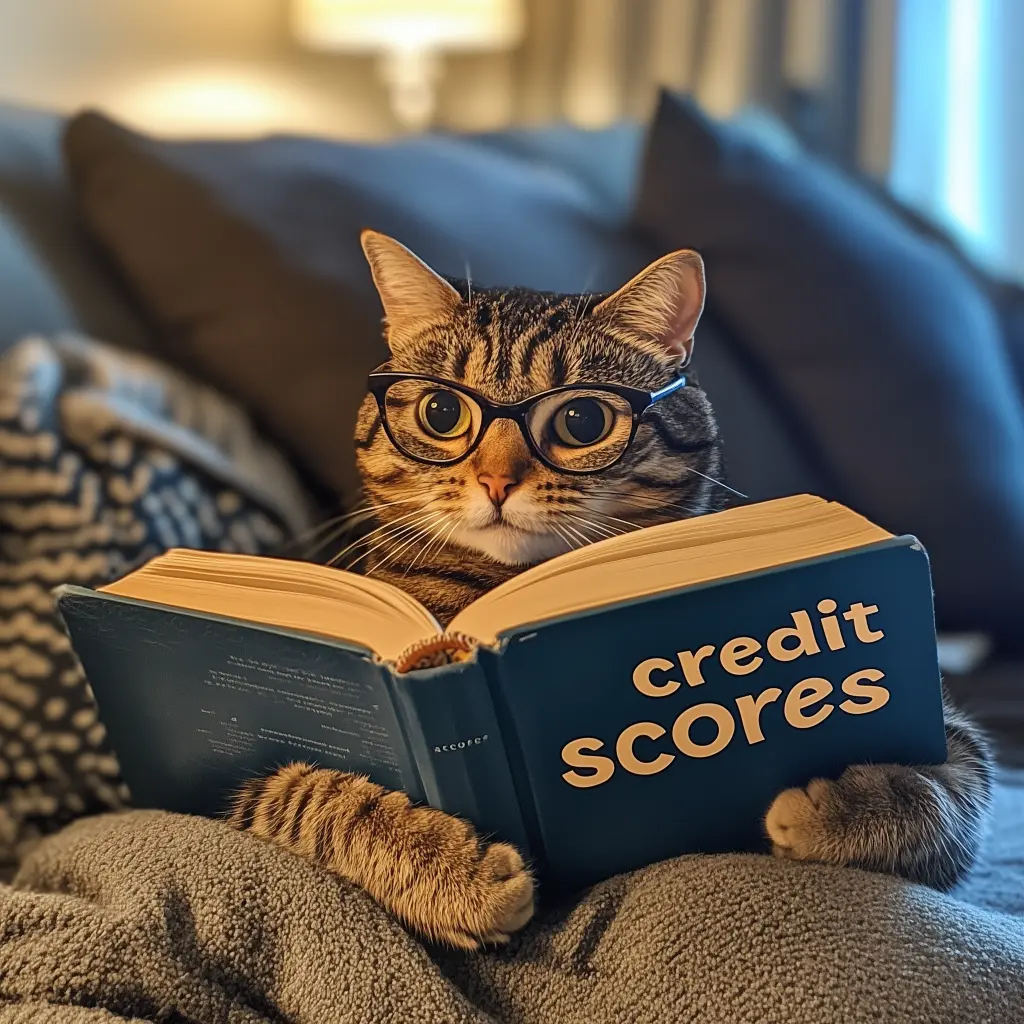Table of Contents
- Setting the Stage
- Understanding Personality Traits
- How Personality Affects Spending
- Naturally a Saver vs Spender
- Past, Present, or Future
- Financial Personality Types: Extroverts, Introverts, and All the In-Between
- Financial Stress
- Risk Takers vs Caution Sign
- Changing Financial Behavior
- Healthy Financial Habits
- Financial Character Scenario Story Time
- Conclusion
Disclaimer: The information provided in this article is for general informational and educational purposes only and does not constitute financial, psychological, or professional advice. While the article explores the connection between money habits and personality traits, individual behaviors and financial outcomes may differ. The author’s opinions and insights are based on general observations and should not be considered a one-size-fits-all approach. Readers should seek personalized advice from a qualified financial advisor, counselor, or other professional to better understand how their specific personality traits may impact their financial decisions. The author and publisher of this blog do not accept responsibility for any actions, financial decisions, or outcomes resulting from the use of this article’s content.
Hello Money! Nice to meet you!
Setting the Stage
Have you ever heard that the way you are as a person can influence how you handle money?
It is true!
Much research has been done correlating different behaviors with different types of personalities in terms of money. According to snowpinewealth.com, “Each of us has a unique relationship with money, influenced by our upbringing, experiences, and even our personalities. This relationship heavily influences our spending habits, saving strategies, and investment choice [1.]
Before we dive in, I want to remind you to keep in mind that if financial hardship hits someone you know—or even yourself—there are tons of factors that can contribute to that situation beyond just their (or your) personality. Having a good grasp on how money fuels life and the life you desire is also a good base of knowledge to have prior to assessing your situation.
This post will explore general behaviors and what research says about them when it comes to money. While some behaviors might come across as negative or positive, I’m just here to drop some info to help you better understand a small piece of what might influence financial situations.
There may be many underlying issues you are aware or unaware of. Should you wish to pursue this avenue further, some of these professions may be of further assistance:
- Financial Planners / Advisors
- Behavioral Financial Advisors
- Certified Financial Therapists
- Financial Psychology Specialists
- Financial Coaches
Understanding Personality Traits

We all have characteristics in our personality that make us unique. Some of these personality traits can translate directly over to our finances.
For example, you may have some of these traits:
- Disciplined
- Future-Focused
- Enjoys instant gratification
- Impulsive
- Strategic
- Risk-Taker
- Generous
- Selfless
- Easily overwhelmed
- Organized
- Methodical
- Detail-Oriented
- Likes to crunch numbers
- Outgoing
- Social
- Cautious
- Thinker
Take a moment to think through which of these traits you possess. How many of these would you use to describe yourself?
How Personality Affects Spending
Do you think any of your character traits may trickle over into your financial habits? Here’s a few examples of how some of the traits listed above can transfer over to money.
- Are you impulsive in your everyday life? You may be an impulse shopper.
- Are you willing to take risks that may benefit you long term? You may be an active investor.
- Are you typically kind and giving in nature? You may often donate to charity.
- Are you the extrovert in the group? The life of the party? You may spend more often on social activities.

Naturally a Saver vs Spender
What are your first instincts when it comes to these questions? Answers to these questions can give you insight into various areas of focus, what drives you to be a saver or spender, or typical behaviors you have with money.
- What do you typically think of as actions when getting a new paycheck?
- When you run into something you want when shopping in a store what does your gut tell you to do?
- Do you think first, act second or act first, think second?
- When life throws you an unplanned emergency expense, what typically happens?
- What is your motivation to save or spend money?
- Do you regularly track your spending?
- Are you tempted by sales and discounts?
Do you identify more with the left or right side of this photo? (saver vs spender)

Past, Present, or Future
Past
Do you make decisions off of things that happened in the past or draw from past experience? Perhaps you’ve gotten burned before and now you are extremely cautious with where you put your money.
Do you mirror those you’ve observed in your past with their financial habits? Family, friends, coworkers, etc.
Present
Do you enjoy living in the moment? Perhaps you have an activity you want to do and prefer doing it now rather than planning and perhaps saving for it later.
Future
Are you the long-term planner in the family? Do you tend to carefully plot out a goal to hit in the future and how you can get there? You do not like to get caught with your financial pants down! It is very typical for those with thoughts focusing in the future to have their rainy day fund squared away.
Financial Personality Types: Extroverts, Introverts, and All the In-Between
The following is some general information on the typical tendencies of these personality types but is still worth some self-reflection. No matter where you fall, do you line up with any of these?
Extroverted
- Typically enjoy social activities, therefore will tend to spend more in these areas
- When you’re out socially, the situation may incline you to make spontaneous purchases having to do with social activities and friends.
- May spend more on experiences rather than physical products
- Tends to be easier to strike up guidance from others
- When in business dealings have no issues taking on social tasks to move a goal forward (meetings, phone calls, etc.)
- Tends to reap financial benefits from more active social relationships (like keeping in touch with finance advisors or getting solid business or money advice from their social circles.)
- Often do well in public speaking, presenting, and high energy tasks
- Tend to do well in teams, negotiating, and can be persuasive in nature.
Introverted
- Introverts tend to carefully plan with lots of internal reflection. This can lead to some very detailed analysis with their finances like a very methodical spreadsheet laying out their spending piece by piece.
- Because the need for social activity is not as elevated as an extrovert, introverts may have an easier time saving money in areas related to social activity and blocking negative financial influence from others.
- Often like to do lots and lots of research before making huge decisions in their finances. Due to this, the research reigns king as opposed to the opinions of others.
- Can procrastinate or avoid activities that require social interactions to move tasks along
- Are often reluctant to network and seek out new social connections that may lead to new financial opportunities?
Blended Personality
- Tend to have balanced spending and saving goals
- Will be able to pluck from both extroverted and introverted traits with their finances
- Tend to hold the strengths of both personality types but may also have some of the pitfalls of both as well
Financial Stress

Do You Worry About Money?
- How do you feel about having unexpected expenses? Unexpected debt?
- Are you often worried about job security?
- Do healthcare costs concern you over obtaining care?
- Do you fear owing taxes or getting audited?
- Fear of outliving your retirement funds
As a result of any worries, how do you react?
Are You Calm, Cool, and Collected?

Are you typically not stressed during these situations?
- When money is tight
- You receive an abnormally high water or electric bill
- Nearing bankruptcy or foreclosure
- Loss of a job
- Take a sudden hit to your credit score
- What are your actions as a result of this?
Risk Takers vs Caution Sign
Do you engage in money habits that involve “riskier” behavior as opposed to being cautious? Let’s check in with some habits of both.
While many risks are perceived as negative, some, if taken, can yield a big payout if they turn out in your favor.
On the other hand, cautious people tend to avoid risky behavior and are always thinking about how to avoid “worst case scenarios.”
Analyze some of these for cause and effect. Do you have negative or positive results because of any of these?
Examples of Risk Taking Behaviors

- High-stakes gambling
- Casino
- Sports betting
- High-risk stock trading [2]
- Frequent selling or trading of assets
- Chasing popular trends
- Launching a new business
- Investing in a startup
- Real estate investing
- Using borrowed money to invest in hopes of a high return
Examples of Cautious Behaviors
- Saving for the unexpected
- Constantly checking in on their finances
- Typically avoids high-risk behaviors
- Prioritizes things like insurance, retirement funds, budgeting
- Ensuring as much as possible income stability
- Diversifying investments
Changing Financial Behavior
Do you find yourself down a road of wanting to evaluate yourself for change?
Take the time to analyze your past and current behaviors to see where you may be able to implement changes.
- Do you take the time to budget for better saving?
- Do you evaluate the behaviors that landed you in the situation you want to change?
- Are there any tools that can help you in your journey that you are not utilizing?
- Are there any people you know that are good role models in finance?
- Are you living within your means?
- Do you understand your financial accounts? (Loans, insurance, investing)
- How often do you reflect on your financial plan/goals/outlook?
- Where are your financial strengths and weaknesses?
- Do you write goals for yourself to work towards? [3]

Healthy Financial Habits
Can you think of more money habits to add to this list?
- Reviewing contracts to understand the details
- Periodically reviewing your finances
- Avoiding impulsive financial decisions
- Price comparing when shopping
- Know what fees you are being charged and why
- Using various tools, apps, and trackers to make tasks easier to see the big financial picture
- Seeking professional advice with big financial decisions
- Planning for retirement and the future
- Setting money goals
- Working toward or becoming debt free
- Automating savings
- Continuously learning in finance
- Understanding credit and credit scores

Financial Character Scenario Story Time
Check out the scenarios below. Do you know anyone with a similar story? Maybe yourself? Whether positive or negative outcomes, the lesson can be just as valuable in hearing examples of success and lessons learned.

Downsizing
Suzie and Bob have recently realized that being able to afford their current mortgage is not sustainable with their other expenses. As a result, they have decided to downsize and sell their home to move into something more affordable. In return, the couple now has saved approximately $500 per month.
Checking Mail and Spending
Jason regularly ignores his paper mail, statements, and monitoring his spending. He one day discovers that in his mail are unpaid debts and when finally looking at his online accounts has realized he has had automated purchases coming out of his account for some time. Some of the unpaid debts have resulted in extra fees and late charges. Jason is now trying to set everything straight and get back on track.
Paying Yourself
Rosario likes to pay herself first. She gets her paycheck and has set up automatic transfer to hit her checking and long-term investment accounts.
A Tight Budget
A young man named Ryan has recently decided that in order to save on groceries he must use his grocery list of what he actually needs and take only the cash he can spend to the store. By prioritizing what he needs and limiting what he can spend, he is always within his budget.
Subscription Woes
Melanie has had multiple subscription services she is paying for that she has forgotten about for months. She realizes that she could have saved hundreds of dollars if she had only cancelled and paid more attention to where her money was going.
Gains and Losses
Julia has put all of her extra money into a high-risk investment. She is almost certain the risk is worth it and expects a 200% gain on her investment. In the coming weeks, the stock has had an unexpected news event and suffered great losses. Julia’s investment is now only worth a fraction of the cost so she sold it at a significant loss.
Credit Report Surprise
Samuel has not looked at his credit report in over 5 years. After recently doing so, he’s discovered accounts opened in his name that he did not initiate. After reviewing the damage this has done to his credit score, he is now trying to correct some of this fraudulent activity.
Conclusion
No matter where you fall and what traits you have in your personality, have an internal dialogue with yourself. Analyze your behavioral patterns when it comes to spending, saving, and everything in-between to help you understand where you may be able to bridge gaps that can help you reel in the financial behaviors you want to stop and flourish on the behaviors you want to build.

References
1 – Smith, R. (2024, June 13). Understanding Your Money Personality: A guide to Financial behavior. Snowpine Wealth. https://snowpinewealth.com/understanding-your-money-personality/
2 – Gandhi, R. (2024, September 30). Understanding Money Personality: How it affects your finances. Fincart. https://www.fincart.com/blog/understanding-your-money-personality/
3 – Two, H. S. (n.d). 8 good financial habits you need to adopt this year. Savology. https://savology.com/good-financial-habits
